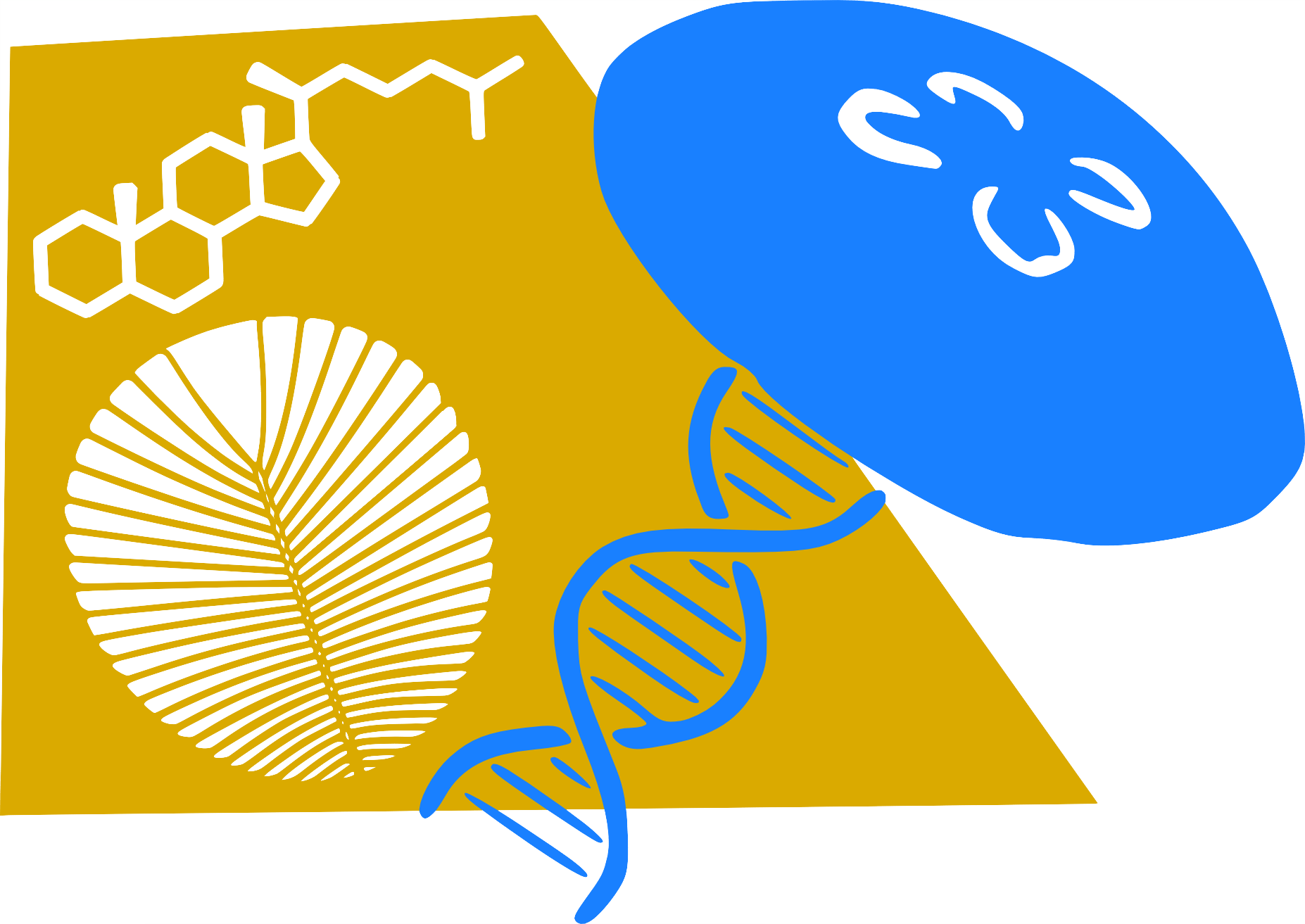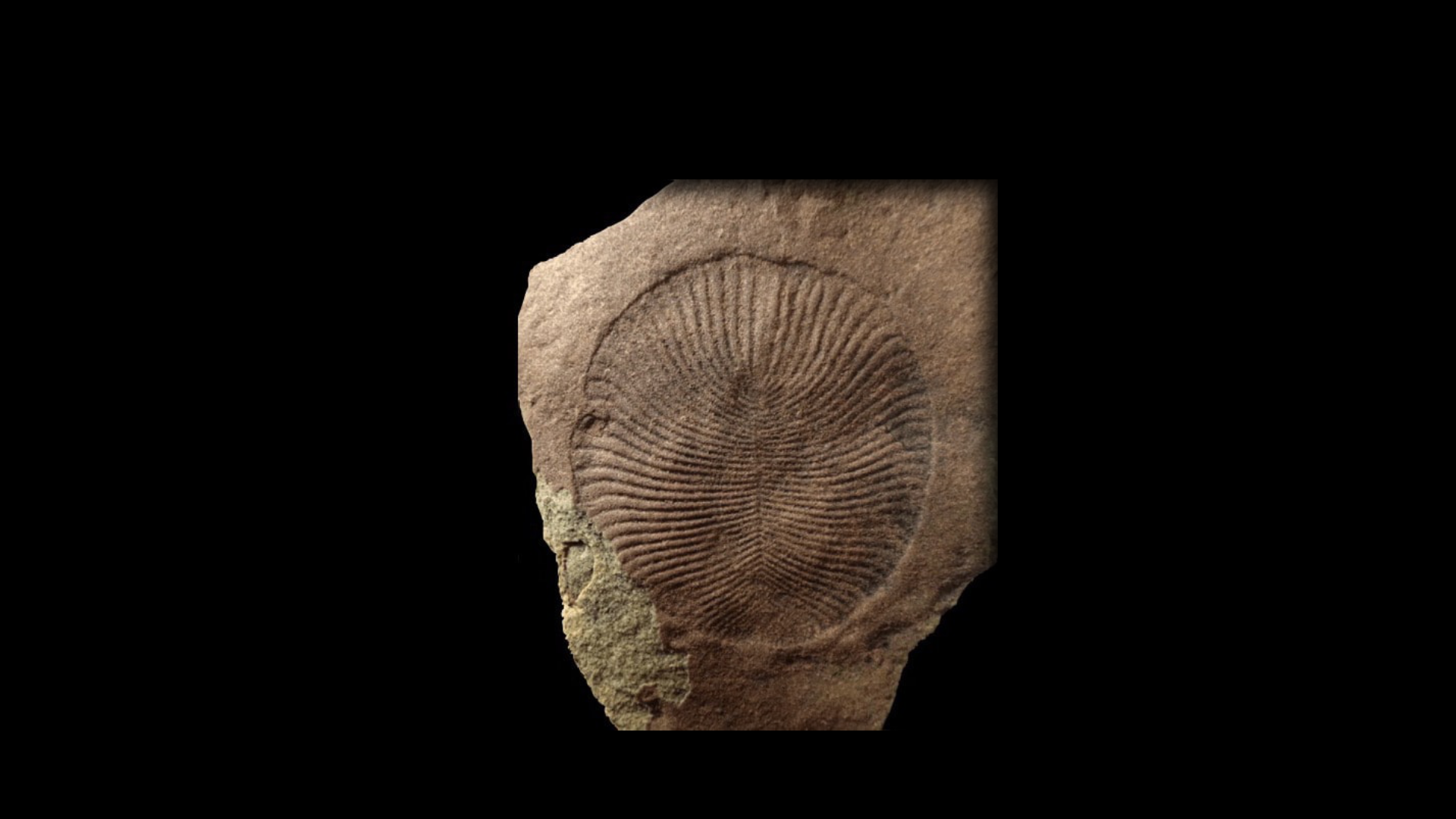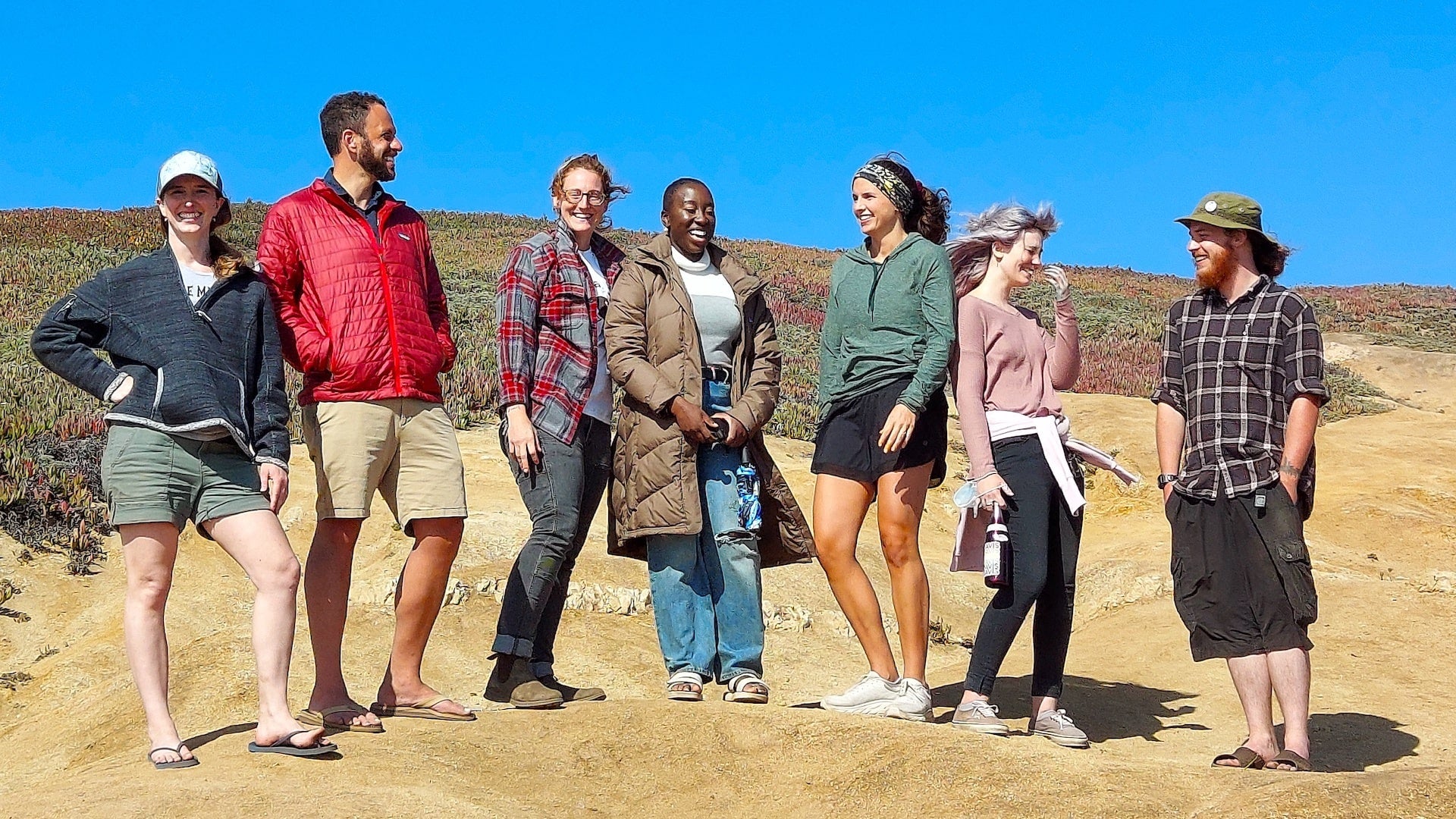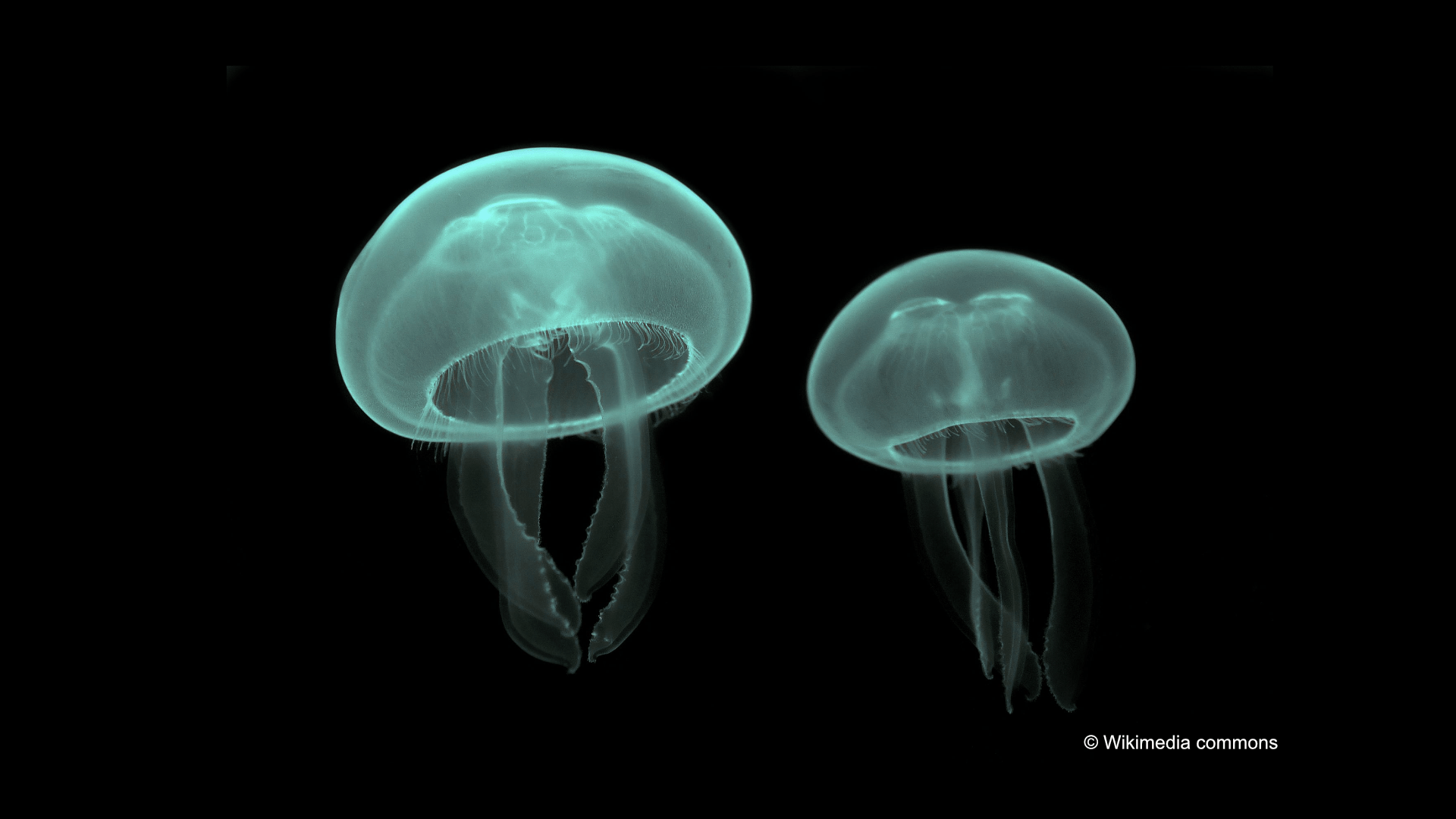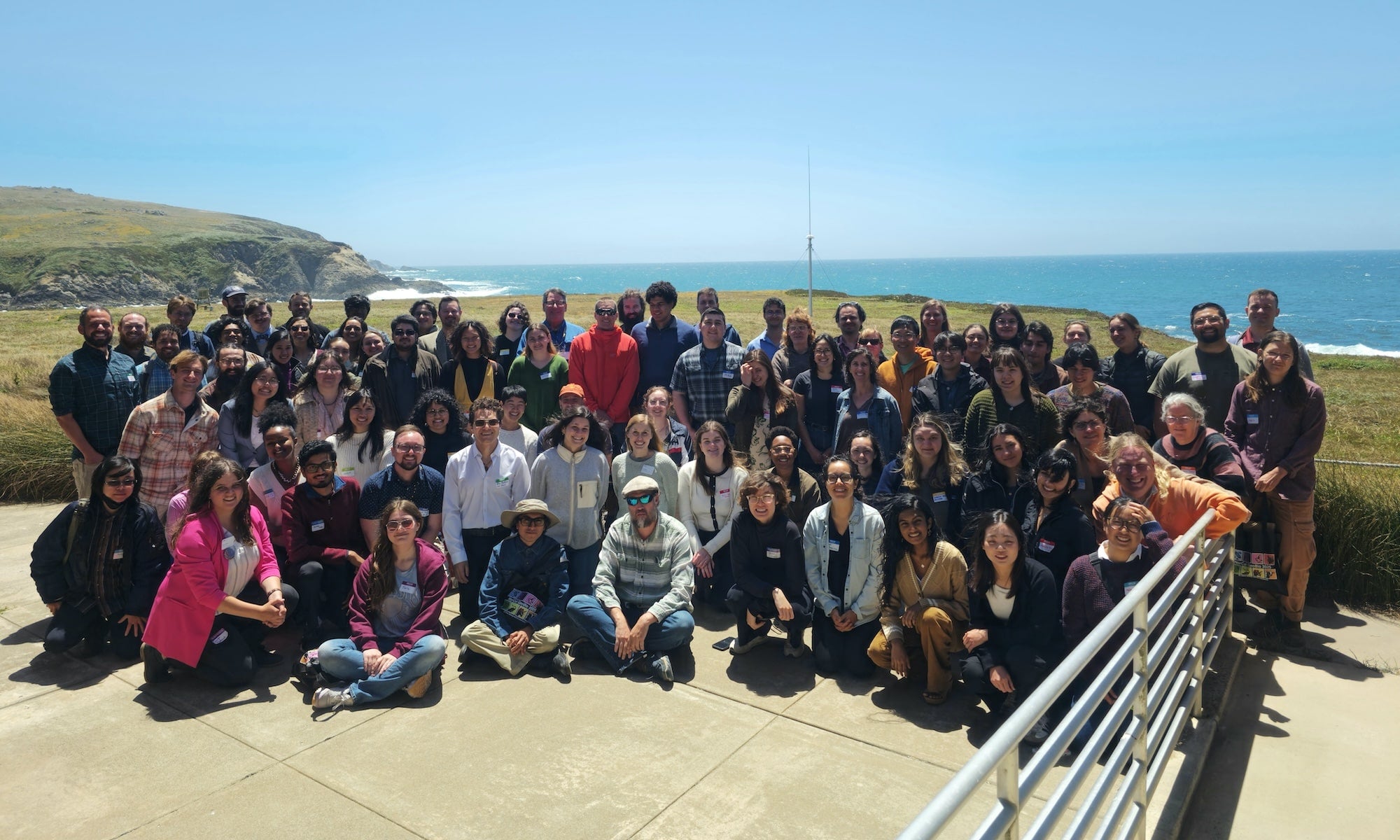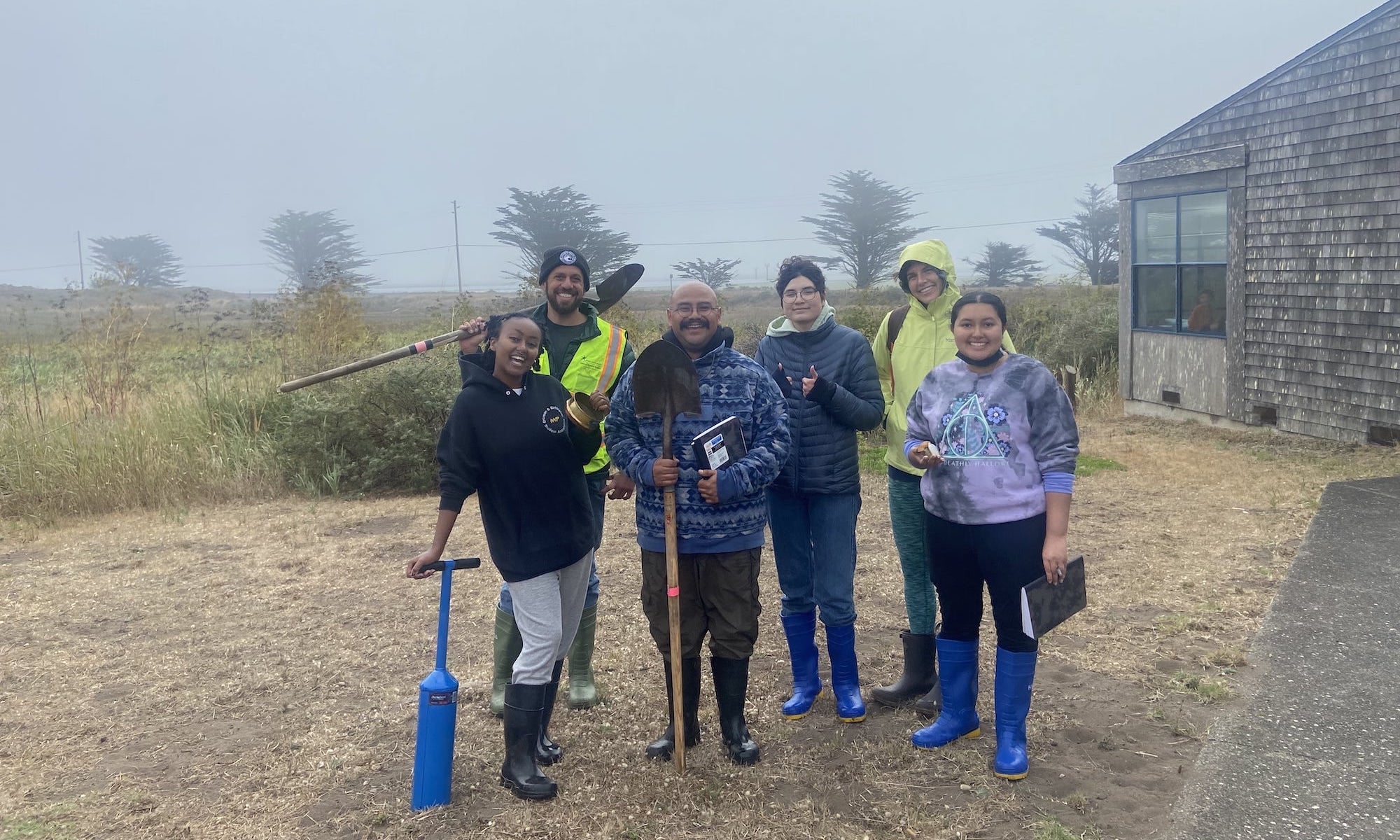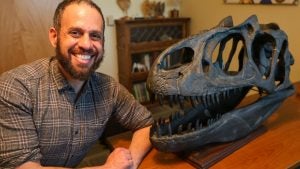 Dr. David Adler Gold is a geobiologist, combining genetics and the fossil record to study the relationship between Earth and life over long timescales. He has worked on problems as old as the origin of complex life, and as recent as the effects of global warming on marine invertebrates.
Dr. David Adler Gold is a geobiologist, combining genetics and the fossil record to study the relationship between Earth and life over long timescales. He has worked on problems as old as the origin of complex life, and as recent as the effects of global warming on marine invertebrates.
David got his PhD at UCLA working with Dr. David Jacobs. He then went on to do postdoctoral fellowships at MIT (with Dr. Roger Summons) and Caltech (with Dr. Lea Goentoro) before joining the faculty at UC Davis.
In addition to his research, Dr. Gold is also the manager of the UC Davis Fossil Collection and the Faculty Director of the UC Davis CalTeach/MAST Program, which trains STEM undergraduates to become K-12 teachers.
Current Areas of Research
Science for Everyone
The Gold Lab is committed to diversifying the field of geoscience, and ensuring that high quality science education is available to all students. We do this in the lab through recruitment and outreach efforts. Dr. Gold is also the faculty director of the UC Davis Calteach/MAST program, which trains undergraduate STEM majors for careers in California K-12 teaching.
Dr. Gold is an advocate for the scientific method and empiricism. But he also recognizes that society shapes the way science is done, and that the natural sciences have historically been used to perpetuate racist ideologies. In addition to his scientific work, Dr. Gold studies the relationship between science and other ways of knowing, including traditional ecological knowledge and improving dialogue between practitioners of science and religion.
Latest News
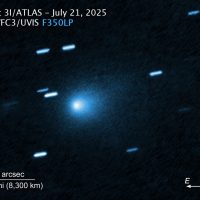
Dr. Gold quoted in The California Aggie
We have insects, birds, fish and even intelligent, bipedal mammals right here on Earth. But what could be beyond Earth? Check out Emilia Rose’s new article on 3I/ATLAS and the search for extraterrestrial intelligence in the latest issue of our college newspaper The California Aggie.… Read More »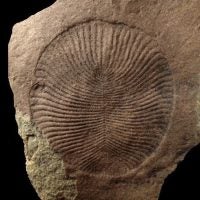
New paper on Dickinsonia featured in Letters & Science Magazine
How Did Animals Eat Before Mouths? A UC Davis Study Reexamines Molecular Fossils from Half a Billion Years Ago. You can read the article here.… Read More »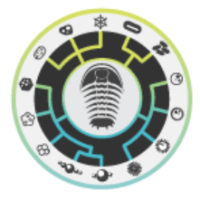
Dr. Gold elected Chair of the Geobiology and Geomicrobiology Division of the Geologic Society of America
Dr. Gold is thrilled to be rejoining the team at the Geobiology and Geomicrobiology (GBGM) Division of the Geologic Society of America. Having previously served as treasurer and secretary, Dr. Gold will now serve as Chair of the Division.… Read More »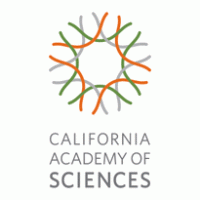
Dr. Gold is elected as a Fellow of the California Academy of Sciences
Dr. Gold is honored to have been elected a Fellow of the California Academy of Sciences. The Fellows of the California Academy of Sciences are a group of distinguished scientists, nominated and appointed in recognition of their outstanding contributions to the natural sciences. You can learn more about them here.… Read More »
New Paper: Dickinsonia biomarkers
Dickinsonia is one of the best-known fossils of the Precambrian, but scientists can’t agree on what kind of creature it was or how it behaved. A biomarker preserved in some Dickinsonia fossils has been interpreted as evidence of decomposition, but could it instead be telling us how this organism ate? …… Read More »
